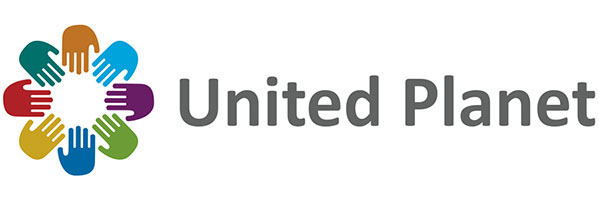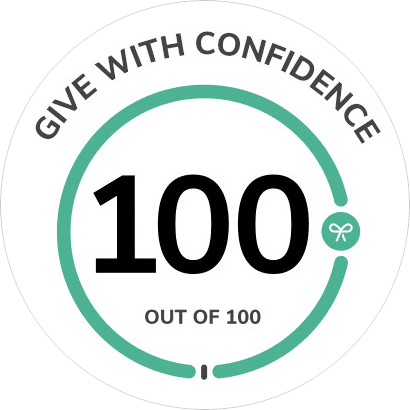We are always ecstatic when we receive updates from our volunteers in the field. A few weeks ago, we shared Part One of a beautifully written letter from Jeff, who is currently a volunteer in Nepal on a yearlong United Planet Long-Term Quest. He reflects on his time at the HOPAD house, a local orphanage and women’s empowerment organization, and on his adjustment to Nepali life. Below is Part Two of his letter…
As time progresses, I slowly become more and more integrated into the household structure of chores. One weekly task that is essential in keeping the house running smoothly is disposing of the garbage. A few weeks ago, this job was given to me, and I could no longer turn a blind eye towards my withstanding grudge against the Nepali waste system. It was either refuse and disrupt the gentle hum of duty or accept and go against my personal moral code. Fortunately for me, a few of the older boys had finished their prescribed duties and came with me in support of my first burning.
With four preteen boys by my side, I carried the two five gallon pails we use as dustbins to the makeshift fire ring just down the dirt path from our home. As we approached, my heart was racing; my conscious was screaming at me, telling me to drop the pails and run. In the internal resistance, a great silence fell over all of us. The boys could feel the tension and acted accordingly. With no words spoken, Laxman, the oldest of the bunch, removed the lid of the blue ground floor bucket  and took out a few papers from the top. After taking the matchbox from my left hand, he gingerly slid the box open, removed a match and pricked in on the side of the container. Quickly and efficiently he lit the corners of each page and coaxed the fire towards the center of the pile with a herder’s expertise.
and took out a few papers from the top. After taking the matchbox from my left hand, he gingerly slid the box open, removed a match and pricked in on the side of the container. Quickly and efficiently he lit the corners of each page and coaxed the fire towards the center of the pile with a herder’s expertise.
While Laxman started the fire, the three other boys began sifting through the contents of the first pail. They separated the flammable items that would easily catch from those that were naturally not to be disposed of via flame. They slowly fed the flammable materials into the fire, allowing it to grow in temperature and intensity. As the girth of the flame increased, the boys started feeding the less flammable objects into the fire.
Once the content of the first container was sufficiently burned, the second green container was cracked open. The green container was the place all the volunteers blindly place all our rubbish, completely ignorant of the disposal process. Unlike the first container, the volunteer bucket was full of plastic bags containing all our personal waste. Because it was necessary to sort all the trash  before burning it, the boys began tearing open all the bags and dumping them on the ground; spreading the contents out with their sandaled feet to get a better look. As I watched all the materials being aimlessly pushed around I found it striking how drastically different the items in the volunteer bucket were to that of the first pail. Virtually all the materials were of a nonflammable nature. Empty plastic cola bottles, aluminum wrappers, personal plastic hygiene containers litter the ground in front of us. After a moment of observing the foreign nature of the pile, I turned my attention to the boys. Their cheerful trash-burning mood had without warning become quiet and sullen. Their heads drooped and they began muttering amongst themselves in Nepali.
before burning it, the boys began tearing open all the bags and dumping them on the ground; spreading the contents out with their sandaled feet to get a better look. As I watched all the materials being aimlessly pushed around I found it striking how drastically different the items in the volunteer bucket were to that of the first pail. Virtually all the materials were of a nonflammable nature. Empty plastic cola bottles, aluminum wrappers, personal plastic hygiene containers litter the ground in front of us. After a moment of observing the foreign nature of the pile, I turned my attention to the boys. Their cheerful trash-burning mood had without warning become quiet and sullen. Their heads drooped and they began muttering amongst themselves in Nepali.
As the boys slowly and meticulously examined each item from the volunteer pile, I suddenly felt as if I was on trial. The four boys before me—who have come to know me as an older brother—had suddenly become a jury, and I was left alone and accountable for the waste of my western colleagues. Before burning, they would hold up each item for us all to observe, ask me who it belonged to, then gently set the item ablaze along the admiration and respect they once had for their Western Aunties and Uncles.
The fire began to die down after finishing off the last of the second container. Without saying a word, the four boys filed off back towards the house, content with the fact that another deed was done. However, as I attempted to move I found that my feet were stuck. My mind was filled with empty thoughts of regret and my heart a pulpy mass fresh from a beating. I stood there until the last bit of smoke had vanished, long after darkness had consumed the sun.
I want to stress that most of the trash being burned—at least from the HOPAD home—is merely paper, clumps of hair taken from brushes, and trace amounts of dirt and debris. It is the Western habits that turn a simple disposal into one of mass pollution. Although there were very few items  that belonged to me personally within that Western pile of waste, it was me who had to be personally accountable for an entire group. I was responsible for my people’s waste. I am responsible for my people’s waste, and it would be hypocritical and a mockery to the whole experience if I did not extend this personal revelation. I deeply encourage you all to examine your own waste. Go outside and tear open your trash bag and meticulously examine its content. Hold yourself personally responsible for what is inside and seriously ask yourself if you could reduce it. I challenge you all to take ownership of your own waste so someone else doesn’t have to.
that belonged to me personally within that Western pile of waste, it was me who had to be personally accountable for an entire group. I was responsible for my people’s waste. I am responsible for my people’s waste, and it would be hypocritical and a mockery to the whole experience if I did not extend this personal revelation. I deeply encourage you all to examine your own waste. Go outside and tear open your trash bag and meticulously examine its content. Hold yourself personally responsible for what is inside and seriously ask yourself if you could reduce it. I challenge you all to take ownership of your own waste so someone else doesn’t have to.
I would like to thank you all for your continued support and for receiving these messages—however lengthy they may be—with open hearts. As I told my family before I left, I feel as if this experience is not merely my own. Sharing these lessons and personal revelations with you all is a great joy and although they may come infrequently, they all come from my heart. Again, I wish you all only the best as you continue walking your paths in this new year, and hopefully this will encourage you all to take an introspective look at your Self and find the treasures within.
Affectionately,
Kamal Bhai (Little Brother)
Thank you, Jeff, for your commitment to the cross-cultural experience and for sharing with us your lessons from abroad. If you are interested in volunteering in Nepal, visit our Nepal homepage to read more about each volunteer project. If you would like to volunteer abroad in another country, check out our interactive map to see our other opportunities!
ABOUT UNITED PLANET
United Planet is a non-profit organization with a mission to create a global community, one relationship at a time. Established in 2001, United Planet offers volunteer abroad, virtual internships, internships abroad, gap year volunteering, and global virtual exchange in more than 40 countries.




